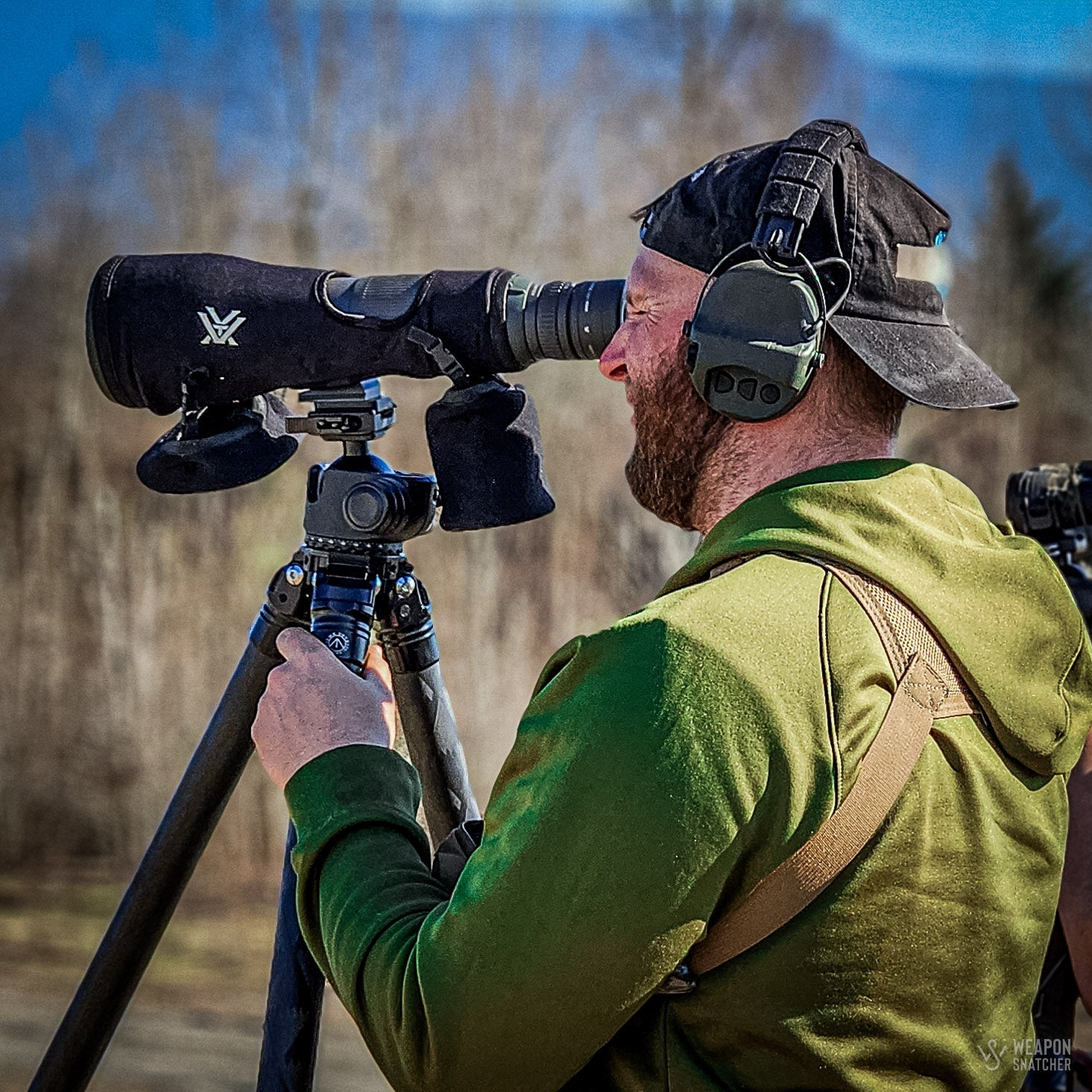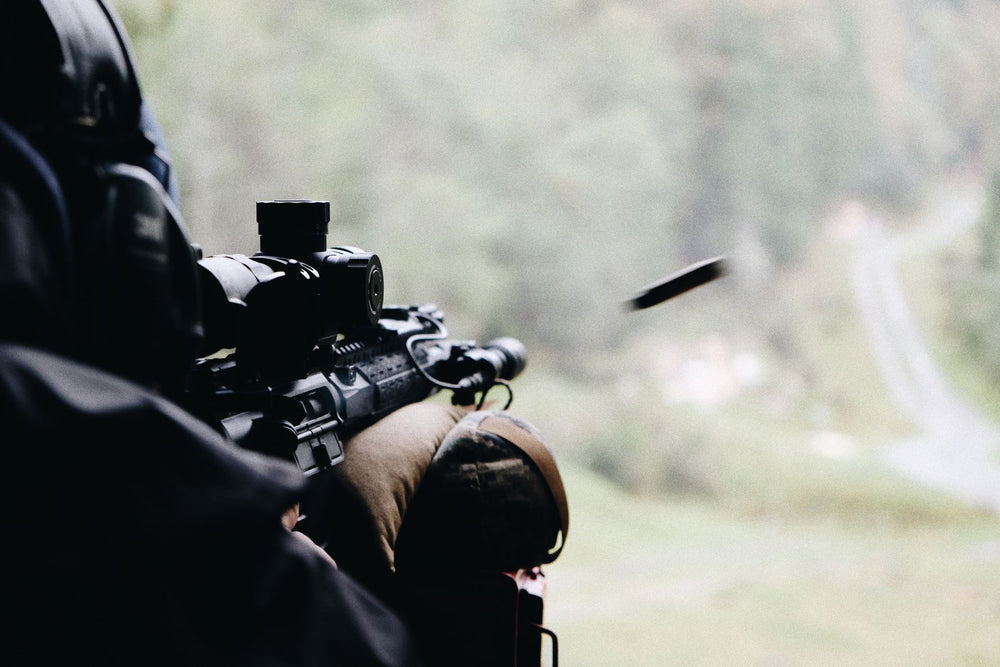Shooting Lessons Learned from Therapy

I have been lucky to be able to attend counseling on a weekly basis for roughly 5 & ½ years at the time of writing this article. The reasons why are massively varied, as are the events I’ve experienced that led me to seek counseling. I’m extremely thankful for the continued experience I have in sessions, but an unexpected benefit of my work in counseling has been lessons learned about feelings and managing failure.
A few years ago, my counselor recommended The Body Keeps the Score by Bessel Van Der Kolk which taught me more about the connection between my emotional state and the state of my body. Some of the lessons learned might seem like they are simple sports psychology, but I think that shooting offers me something other sports never have. First, the gas gun competitions I have pursued like Quantified Performance allow and even sometimes require a miss when wind isn’t playing nice; missing for your own benefit isn’t common in any other sports I’ve played. Second, shooting carries a martial aspect to it that directly mirrors life-or-death situations where fear is inherent to the task. Counseling showed me that remaining calm and collected in competition is not a matter of denying my feelings, but being able to name them, understand them, and care for them quickly. Additionally, I need to care for my body by breathing when I feel stressed, staying visually focused on the targets I need to engage, and paying attention to bodily signs that I’m dealing with fear.

The biggest lesson I learned from counseling that applies to shooting is that I must be kind to myself. Often times, I think people hear the word “kind” and conflate it with being nice or weak. I see being nice as being superficial, polite, saying the right thing, but being kind is simultaneously empathetic and authentic, it cares for the whole person and is a moral choice. In my faith I believe that everyone is made in God’s image; translated, everyone’s humanity carries inherent value, and as a result they deserve kindness. When I teach shooting fundamentals, I love talking about the post-shot process which can be summarized as a few tasks: recoil management, analyze/assess the shot, then apply the information learned. Too many times, I replaced analyzing and assessing with a value statement, usually something like “I’m a piece of shit,” when I missed. From a technical perspective, it’s wrong because I’ve left free DOPE on the range; from an emotional perspective, it's wrong because I haven’t made a judgment of myself that is helpful to my identity as a shooter, or my inherently valuable humanity in general.
Because kindness is empathy, whether towards yourself or another person, it requires the ability to be able to actually name an emotion, usually multiple, that you’re feeling at any given time. In counseling, one of my counselor’s go-to mantras is “Feelings illuminate needs, and needs require action.” Feelings are subjective and point to things I need at any given moment, and understanding and meeting the need is ultimately my responsibility. We use a list of emotions covered in a book called The Voice of the Heart by Chip Dodd that includes hurt, loneliness, sadness, anger, fear, shame, guilt, and gladness. When I look at these feelings in my own experience, I am evaluating whether I am expressing a healthy or unhealthy version of the feeling; for example, is my anger being expressed as rage (unhealthy, angry at) or passion (healthy, angry for)? Anger expresses a need for justice, or “the way things ought to be” as defined by a former professor. If you learn these emotions and practice identifying them, it can be done quickly, like any rifle or pistol fundamental.
In a conversation with Mark Smith from JBS Training Group that covered a number of topics including match mindset, he told me “You can't choose not to care, you can choose what you care about.” Luckily I wrote this down, and with the help of my counselor, I morphed this to “I can’t choose not to feel, but I can choose when to care for my feelings.” What I have learned is that I can cultivate high levels of healthy gladness, anger and shame pre-match by reflecting on helpful truths including reflecting on my intrinsic desire be at the match (gladness), a desire to do well at the match (anger), and acceptance of my inability to control every aspect of the match (shame). I have found that for the most part, focusing on these healthy expressions of feelings can keep my head clear for the 90 seconds I need to shoot a stage; however, if something like unhealthy shame creeps into my head telling me to have contempt for myself, I have found that to be a feeling that actually needs to be processed on the spot to save the stage.

In my last Quantified Performance match, I took 2nd place in my division, General Purpose. It felt good to do well, and I was looking forward to a scoped carbine course about a month later. The final course event was a small competition shooting medium-range targets from four positions. In that event, I did relatively well for the first half; but, when I hit the third shooting position, I got a bad position and tried to muscle through it. I started missing, and in my own private after-action, I realized I started to feel shame about my missed rounds, and then that turned into fear that I would blow a big lead. I was wholly unraveled, and I did blow that lead; after hitting that third of four positions, I didn’t get a single hit. I shouldn’t have cared what people thought about my ability to get into a good position the first attempt (unhealthy shame) or about my worth as a person (unhealthy shame and fear), but I should have cared for myself and my feelings. If I had taken deep breaths, reflected on my desire to do well rather than muscle out a fast win (healthy gladness, anger and shame), I may have actually won given how accurate I had been from good positions prior. I should have practiced judging my performance in the moment with healthy shame.

One of my favorite ethicists that I talk about often in counseling is Miroslav Volf. Most of his work revolves around the Bosnian War, a topic close to him being from the former Yugoslavia, and the topics of forgiveness, reconciliation and otherness. A topic he covers heavily in End of Memory is the concept of “remembering rightly.” Generally, because memory of evils committed is the root of all conflict, truthfully remembering wrongs done against us and by us is an essential prerequisite to engaging in reconciliation. While missing or failing at a match isn’t a fraction of the trauma experience in an ethnic conflict, the potential for privately-experienced unhealthy shame can cause you to distrust your DOPE, make it hard to find stability on a barricade or forget basic equipment checks. Matches tend to be a gauntlet of short, intense series of targets that can run together if you wait until the end of the day to reflect on them. Not only does that make it difficult to remember what or how you did on any given stage, but having difficulty reflecting on a stage can prevent you from remembering rightly in a way that can help you overcome unhealthy shame. I have a habit of keeping a notebook in my pocket throughout matches; I try and get down something I did well, something I did poorly and a description of the feelings I felt before, during and after the stage. At the end of the day, if I have these details, they tend to be enough to put me back into the moment enough to make amends with my feelings and derive notes for future training days or matches. They can also add a lot of color to any footage you might have of you shooting an especially good or bad stage, even if you can't see the targets on video.
- Be Kind to Yourself
- Feelings illuminate needs & needs require action.
- Judge your performance through the lens of healthy shame.
- Remember rightly.
Author: Brian McNeilly





Dejar un comentario